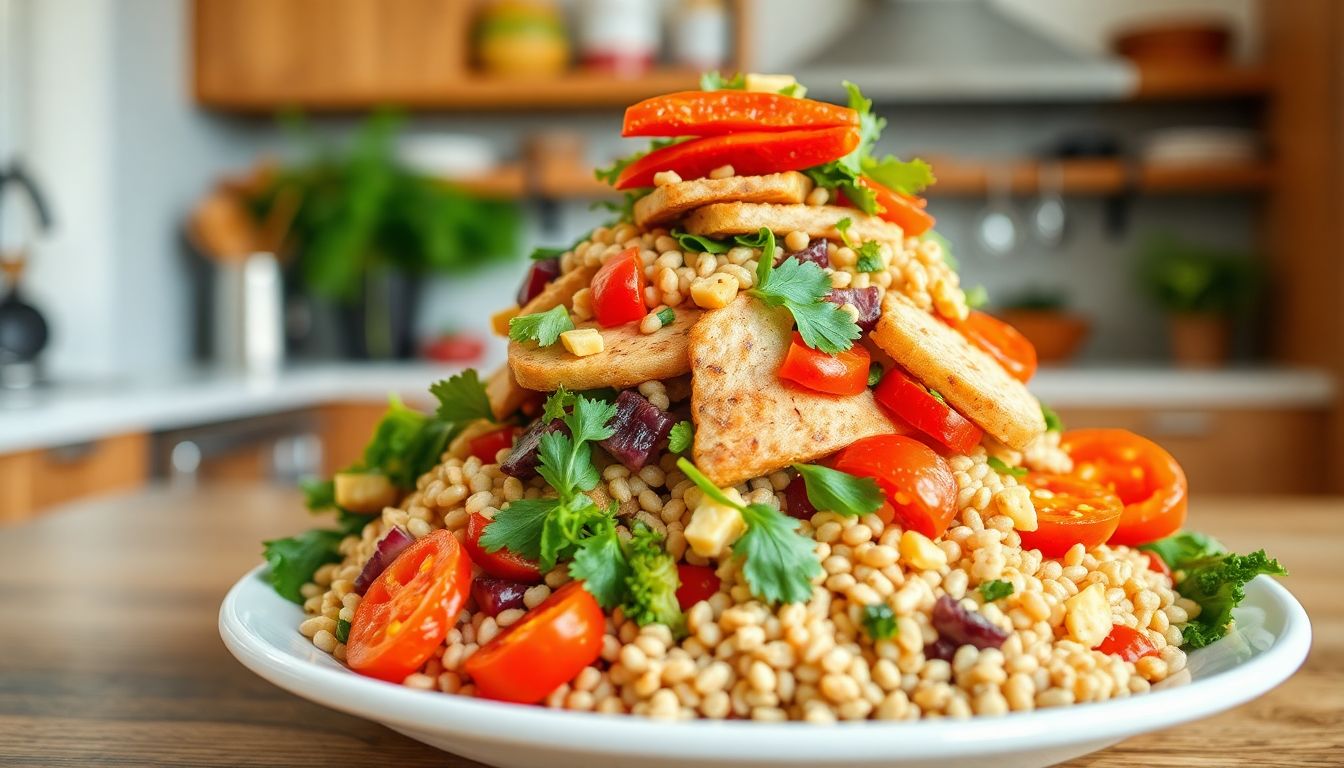Here's your article:

How to Gain Weight in One Week: A Realistic Guide
Ever stared at the scale, wishing the number would just go up? Feeling stuck and seeing no progress can be super frustrating. The goal isn't just to gain any weight. What we want is healthy weight gain, packing on muscle instead of just fat. This guide offers steps you can take to gain weight safely, and effectively, in just one week.
Understanding Weight Gain Basics
Here's the science of weight gain. It's all about calories, nutrients, and how your body works.
Caloric Surplus: The Key to Gaining Weight
To gain weight, you need to eat more calories than you burn. That's called a caloric surplus. Calculate how many calories you need daily. Then, add extra calories to gain weight.
To find your daily needs, use an online calculator. It factors in activity level, gender, and age.
Let's say your maintenance calories are 2,500. To gain weight, aim for 2,800-3,000 calories daily. That extra 300-500 creates a surplus.
Macronutrient Ratio for Muscle Growth
Macronutrients are protein, carbs, and fats. Each plays a vital role in healthy weight gain. Protein is essential for muscle growth. Carbs fuel workouts, and fats support hormone function.
Aim for 1 gram of protein per pound of body weight. For example, a 150-pound person needs 150 grams of protein daily. Carbohydrates should make up 40-50% of your daily calories. Fats should cover the remaining 20-30%.
The Role of Genetics and Metabolism
Genetics influence your body type. Metabolism affects how quickly you burn calories. Some people gain weight easier than others. Don't get discouraged! Everyone can gain weight with the right plan.
Creating a High-Calorie Meal Plan
A high-calorie meal plan is crucial for weight gain. It ensures you eat enough calories. It also makes sure you get the right nutrients.
Sample High-Calorie Meal Ideas
- Breakfast: Oatmeal with nuts, seeds, and fruit (500 calories). Add a scoop of protein powder for more gains.
- Lunch: Chicken and rice with vegetables (600 calories). A balanced meal that provides protein and energy.
- Dinner: Salmon with sweet potato and avocado (700 calories). Healthy fats and protein for recovery.
Calorie-Dense Snack Options
Snacks are key for hitting your calorie goals. Choose options that are healthy and convenient.
- Nuts and seeds offer healthy fats.
- Dried fruit provides quick energy.
- Yogurt adds protein and calcium.
- Protein bars are great on-the-go.
The Importance of Meal Timing
Eat frequently throughout the day. This helps you consume more calories. It also keeps your metabolism steady. Aim for 5-6 smaller meals rather than 3 big meals.
Maximizing Weight Gain Through Exercise
Exercise plays a crucial role in healthy weight gain. It helps you build muscle. It also ensures the weight gained is mostly muscle, not fat.
Strength Training for Muscle Growth
Strength training is essential for building muscle. Lifting weights stimulates muscle protein synthesis. This helps muscles grow and get stronger.
Focus on compound exercises. Squats, deadlifts, and bench presses work many muscles. They are super effective for overall muscle growth.
Cardio for Overall Health
Cardio is important for overall health. But too much can hinder weight gain. Stick to low-intensity cardio. Walking or cycling are good options.
Sample Workout Routine for Weight Gain
- Monday: Chest and Triceps
- Bench Press: 3 sets of 8-12 reps
- Incline Dumbbell Press: 3 sets of 8-12 reps
- Triceps Pushdowns: 3 sets of 10-15 reps
- Wednesday: Legs
- Squats: 3 sets of 8-12 reps
- Leg Press: 3 sets of 10-15 reps
- Hamstring Curls: 3 sets of 12-15 reps
- Friday: Back and Biceps
- Pull-ups: 3 sets to failure
- Barbell Rows: 3 sets of 8-12 reps
- Bicep Curls: 3 sets of 10-15 reps
Supplements to Support Weight Gain
Supplements can aid weight gain. They aren't essential, but they can help. Focus on safe, scientifically-backed options.
Protein Powders: A Convenient Source of Protein
Protein powders are a convenient way to increase protein intake. They come in different types. Whey, casein, and soy are popular choices.
- Whey protein is fast-digesting. It's best after workouts.
- Casein protein is slow-digesting. It's good before bed.
- Soy protein is a plant-based option. It's suitable for vegetarians.
Creatine: Enhancing Muscle Strength and Size
Creatine enhances muscle strength and size. It helps muscles produce energy during workouts. This leads to more muscle growth over time.
Mass Gainers: A Calorie Boost
Mass gainers provide a calorie boost. They are high in carbs and protein. Use them if you struggle to eat enough calories. Be mindful of the sugar content.
Tracking Progress and Adjusting Your Plan
Tracking progress is key to seeing results. Adjust your plan as needed. This ensures you stay on track toward your weight gain goals.
Monitoring Weight and Body Composition
Weigh yourself regularly. Track your body composition. Use a scale that measures body fat percentage. Take measurements of your chest, arms, and legs. This helps you monitor muscle growth.
Adjusting Caloric Intake Based on Results
If you aren't gaining weight, increase your caloric intake. Add another 200-300 calories per day. If you're gaining too much fat, reduce calories slightly.
Staying Consistent and Patient
Consistency is crucial. Stick to your meal plan and workout routine. Be patient. Weight gain takes time. Don't get discouraged by slow progress.
Conclusion
Gaining weight in a week is possible, but it requires dedication and planning. Focus on a caloric surplus. Prioritize strength training. Use supplements wisely. Track your progress and adjust as needed. Remember, healthy weight gain is a marathon, not a sprint. Stick with it, and you'll see results.


0 Comments